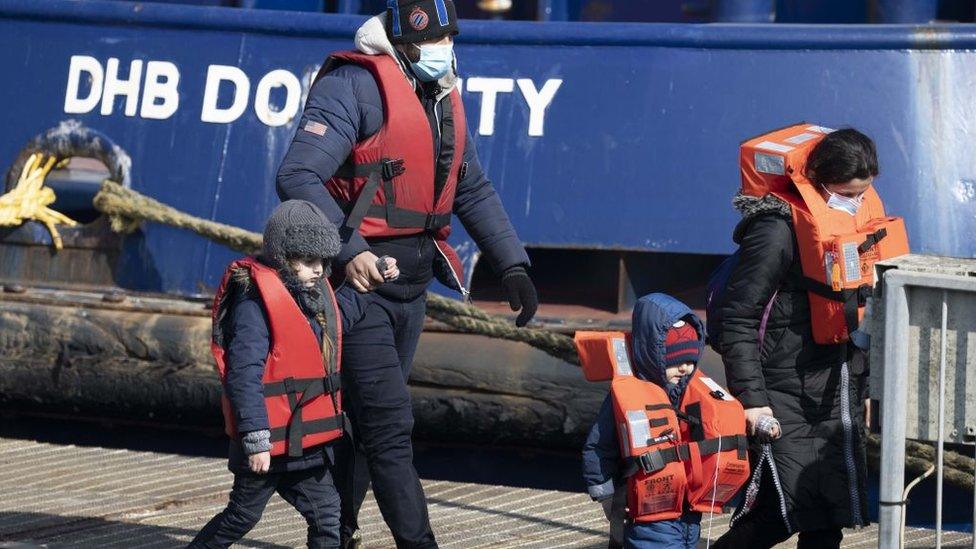Rwanda: Rishi Sunak's asylum seeker plan approved by House of Commons
- Published
- comments
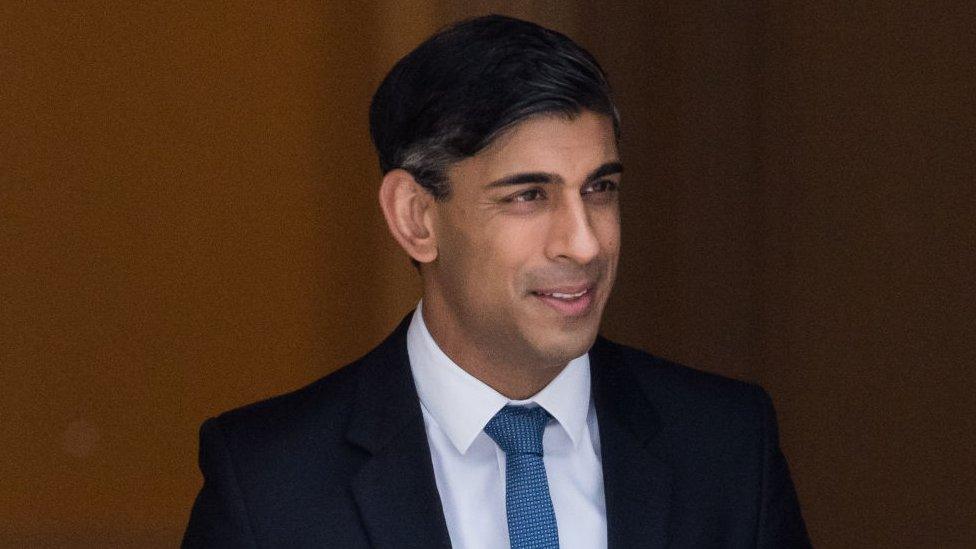
Rishi Sunak's Rwanda plan has moved a step closer to becoming law
Prime Minister Rishi Sunak's controversial plan to send some asylum seekers to Rwanda has moved a step closer, after being approved by the House of Commons.
Not everyone was happy with the plan and it had faced a lot of criticism including from people from in his own party.
But last night it was approved by 320 votes to 276 votes, with just 11 Tories voting against it in the end.
This comes after the Home Secretary, James Cleverly, signed a new deal with the African country about the government's plan in December.
The plan will next be discussed in the House of Lords before it can become law.
In November, the Supreme Court - the highest court in the UK, which has the final say on big decisions - said that the government's previous plan was "unlawful".
They said this was because there was a risk that asylum seekers who are sent to Rwanda, in east-central Africa, could be returned back to the places they fled from, where they could face "real risk" or harm.
Mr Cleverly is now the third UK Home Secretary to have made the journey to Rwanda to sign a treaty, after Priti Patel and Suella Braverman.
He said that Rwanda was a safe country and the government "feel very strongly this treaty addresses all of the issues of their lordships in the Supreme Court".
But some in the UK Conservative party, who were elected to run the country, don't believe the treaty is a good solution.
In response, Robert Jenrick resigned from his position in government as Immigration Minister and says he does not think the plan will give the UK government the "best possible chance of success".
The government has said while Mr Jenrick's decision to leave his job was disappointing, he had misunderstood the situation.
The opposition party's shadow home secretary, Yvette Cooper, (Labour), said: "It is a sign of the total chaos in the Tory party and the complete collapse of Rishi Sunak's leadership that even while he is sitting in the Commons for the announcement of his new Rwanda plan, his own immigration minister is resigning because he doesn't think it will work."
What is the UK's new treaty with Rwanda?
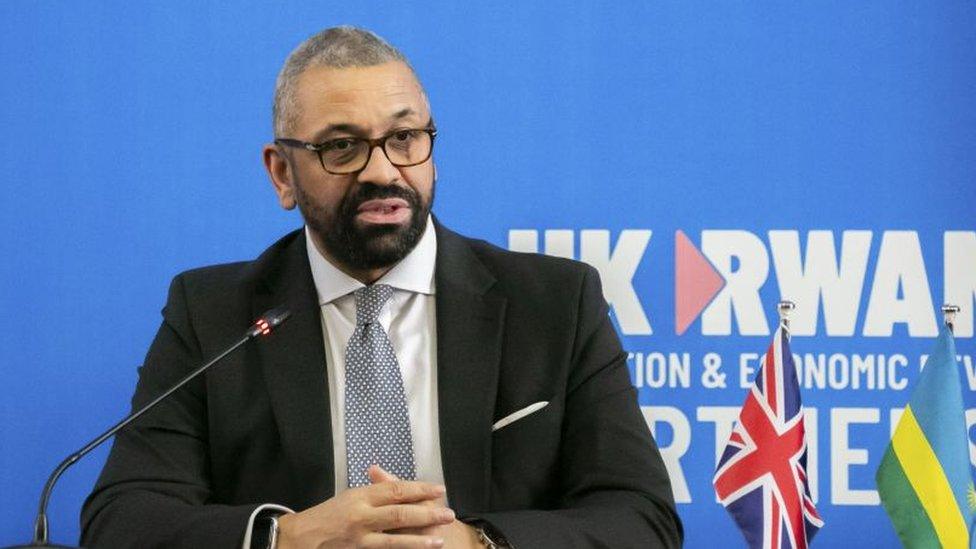
On 5 December, Home Secretary James Cleverly flew to Kigali, the capital city of Rwanda, to sign a new treaty.
The UK government says the new treaty means that anyone sent to Rwanda as part of their asylum plan, are not at risk of being sent to another country where they could be hurt, or have their freedom taken away.
It also announced that an independent monitoring group will be set up to make sure that Rwanda follows the rules of the treaty, and make sure that relocated people and their lawyers can make a formal complaint if something is not right.
A new appeal group will also be set up, which will be made up of judges with expert knowledge of the asylum system, from a range of countries, to hear people's stories.
A treaty is an agreement between two or more countries that is governed by international law.
What is the Rwanda asylum plan?
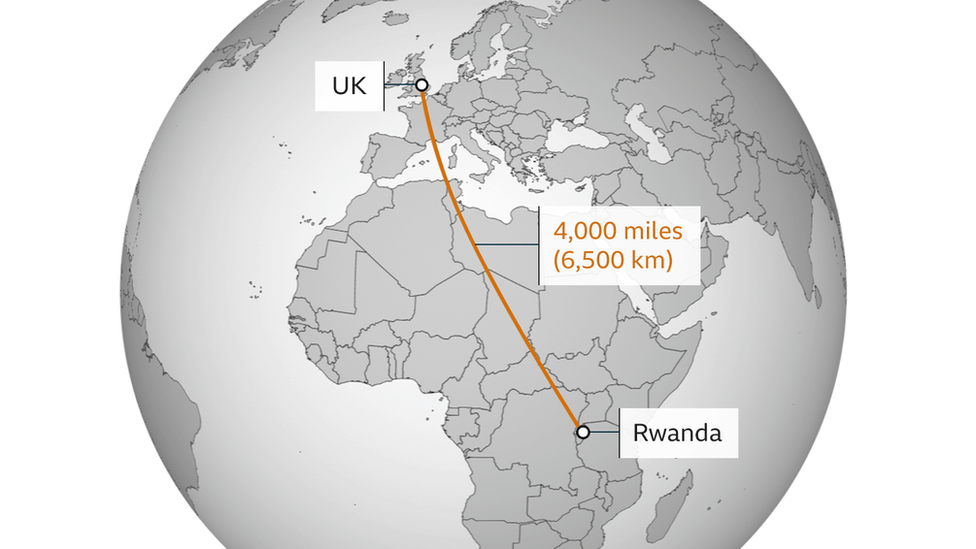
Map showing the distance from the UK to Rwanda
The five-year deal between the UK and Rwanda was first announced by former prime minister Boris Johnson back in April 2022.
It said that some asylum seekers arriving to the UK from other countries would be flown to Rwanda, 4,000 miles away, where they will be allowed to apply for the right to live in the African country.
On arrival, they could be given 'refugee status' and allowed to stay in the East African country. If not, they could apply to settle there on other grounds, or seek asylum in another "safe third country".
The government said that "anyone entering the UK illegally" after 1 January 2022 could be sent there, with no limit on numbers.
As part of the deal, the UK would also allow "a portion of Rwanda's most vulnerable refugees" to live in the UK.
The UK has already paid the Rwandan government £140m, but no asylum seekers have actually been sent there yet.
The first flight taking asylum seekers to Rwanda was due to go in June 2022, but was cancelled after legal challenges.
Refugee - A refugee is a person who has been forced to leave their country in order to escape war, persecution or a natural disaster.
Asylum seeker - Once refugees reach somewhere safe, they can stay a refugee or decide to ask for special permission to stay in that country - called asylum.
Migrant - There is no officially recognised definition of a migrant. But it is widely agreed that migrants are people who travel to another country in search of a better life or opportunities for either themselves, their families or both. This can be because they want to work, study or join family, or because they feel they must leave their home country for their safety, because of things like poverty, natural disasters or violence there.
Why does the government want to send asylum seekers to Rwanda?
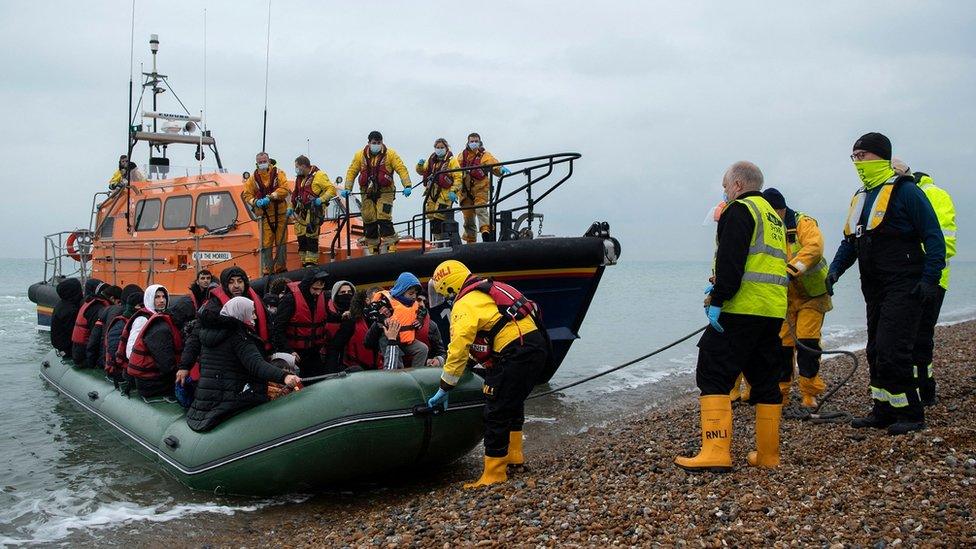
The number of people crossing the English Channel in 2022 was the highest on record
The government say the aim of their plan is to try to stop people thinking about travelling to the UK using "illegal, dangerous or unnecessary methods", such as on small boats across the English Channel.
Each year thousands of people make a dangerous trip across the English Channel from France.
Vulnerable people, including children, make the journey in small, overcrowded boats that are at risk of sinking.
For several years organised crime gangs have created an entire industry in smuggling people to different countries. Families sometimes save up huge sums to send just one relative to Europe, but despite getting lots of money, the gangs put people in flimsy boats to make the dangerous crossing.
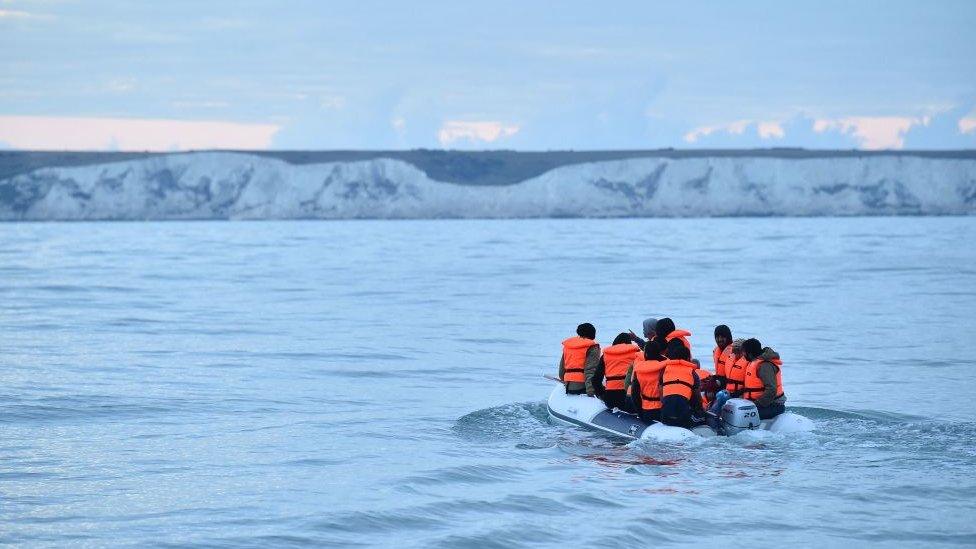
In 2022 more than 45,700 migrants came to the UK in this way, the highest since records began.
As of 4 December 2023, the number of small boat crossings for the year is a third lower than at the same time in 2022. But it is not clear why the number is lower this year.
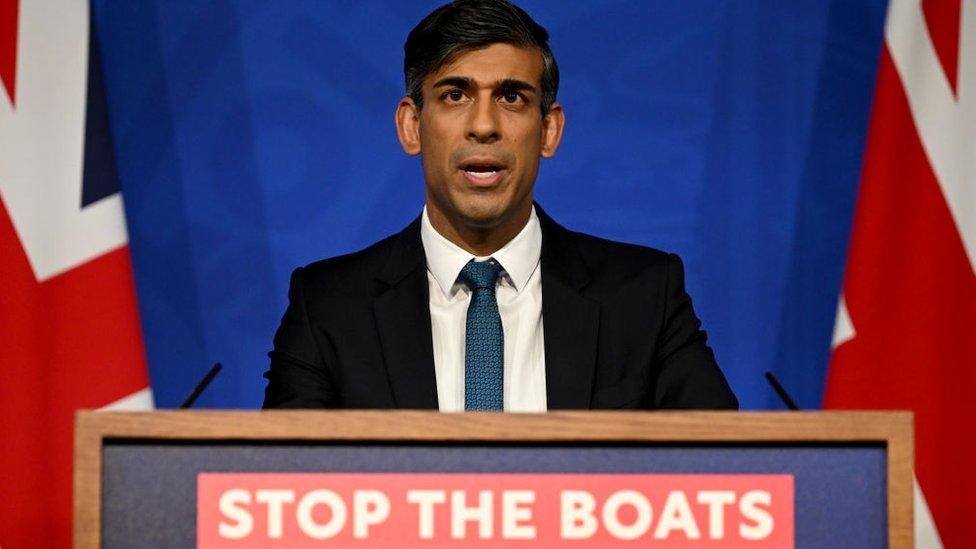
Prime Minister Rishi Sunak has said that "stopping the boats" is one of five main priorities for his government ahead of the next general election.
The government argues that by sending asylum seekers to Rwanda it will discourage people from trying to cross the Channel, and put a stop to the criminal gangs. Charities and refugee groups say this won't work, and people will still pay the gangs to try to get to the UK.
Since it was announced the plan has received strong criticism, with some charities and MP's concerned about the wellbeing of asylum seekers, how expensive the plan is, and whether it would actually work.
What are people saying about the government's plans?
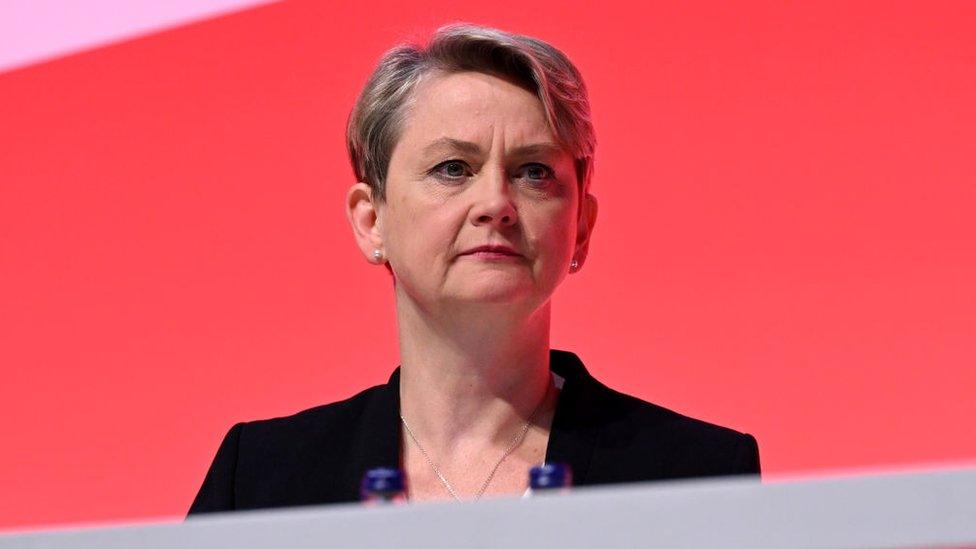
Labour's shadow home secretary Yvette Cooper
The Labour party has been critical of the Rwanda policy and how the government plans stop migrants arriving to the UK on small boats.
Labour's shadow home secretary Yvette Cooper said: "This is the desperate dying days of a party ripping itself apart, clearly totally out of ideas, lost any sense of leadership or direction.
"They're on their third new law, forgive us for not believing that this one is going to solve anything, either."
The Refugee Council - an organisation that says it stands up for the rights of refugees and people seeking asylum in the UK - says "the Rwanda Plan will not act as deterrent to 'stop the boats' and is already leading to refugees disappearing from contact with support organisations".
It has published a report working alongside 40 organisations who support people in the UK asylum system and says the government's Rwanda plan is "more likely to result in people taking journeys that are even more dangerous" and is "having a severe negative impact on people's mental health".
What did the Supreme Court say about the Rwanda policy?
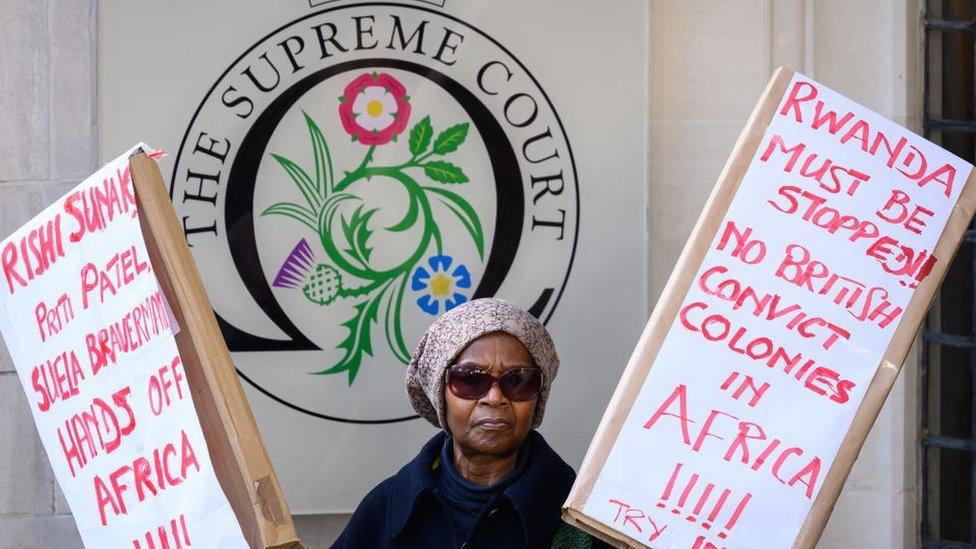
The UK Supreme Court said that the government's previous Rwanda plan was 'unlawful'.
Five leading judges agreed that the Court of Appeal had been right in June when they said there had not been a good enough assessment on whether Rwanda was a safe country for asylum seekers to be sent to.
President of the court, Lord Reed, said there was a "real risk" asylum seekers could be sent back to the places from which they had fled.
This breaches part of the European Convention on Human Rights (ECHR), which protects people from being hurt, or having their human rights taken away.
The judges also said the plan broke special safeguards - that are put in place to protect people - in three British laws passed by Parliament in the last 30 years.
What is Rwanda like?
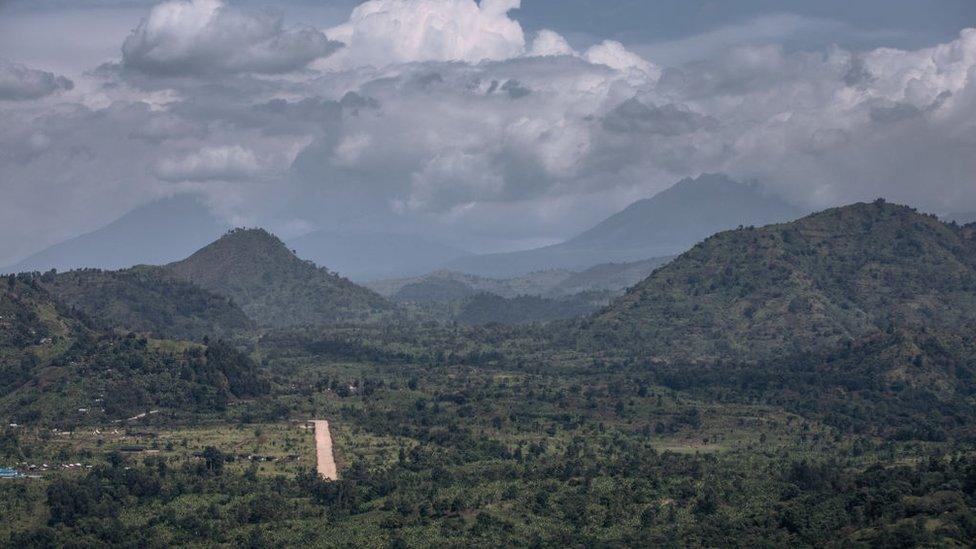
Rwanda is known as the "land of a thousand hills" because of its hilly landscape.
Rwanda is a country in east-central Africa with a population of around 13.8 million people.
The country is ruled by President Paul Kagame, who regularly speaks about his commitment to refugees, having been a refugee himself in Uganda.
However, the country has a poor human rights record, and there have been many concerns about President Kagame's leadership and the political freedom of people in the country - with some opposition leaders reported as missing or dead.
According to Human Rights Watch, "Rwanda is a country where it's very dangerous to oppose the government".
In the mid 1990s around 800,000 people were killed in Rwanda in an event that became known as the Rwandan genocide.
In 2021 the UK government expressed concern at the United Nations over "continued restrictions to civil and political rights and media freedom" in Rwanda.
Home secretary James Cleverly insists that Rwanda has made "a clear and unambiguous commitment to the safety of people who come here".
- Published16 November 2023
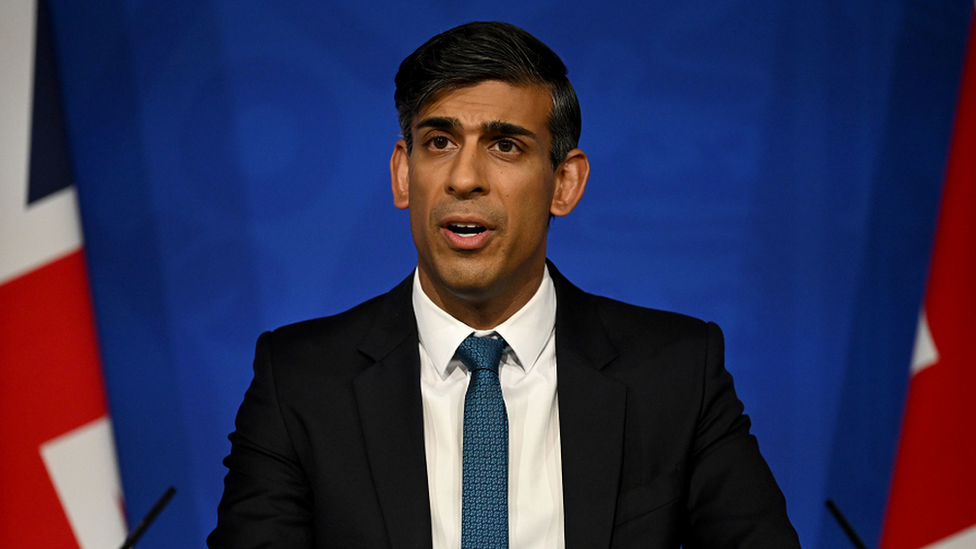
- Published17 April 2022
